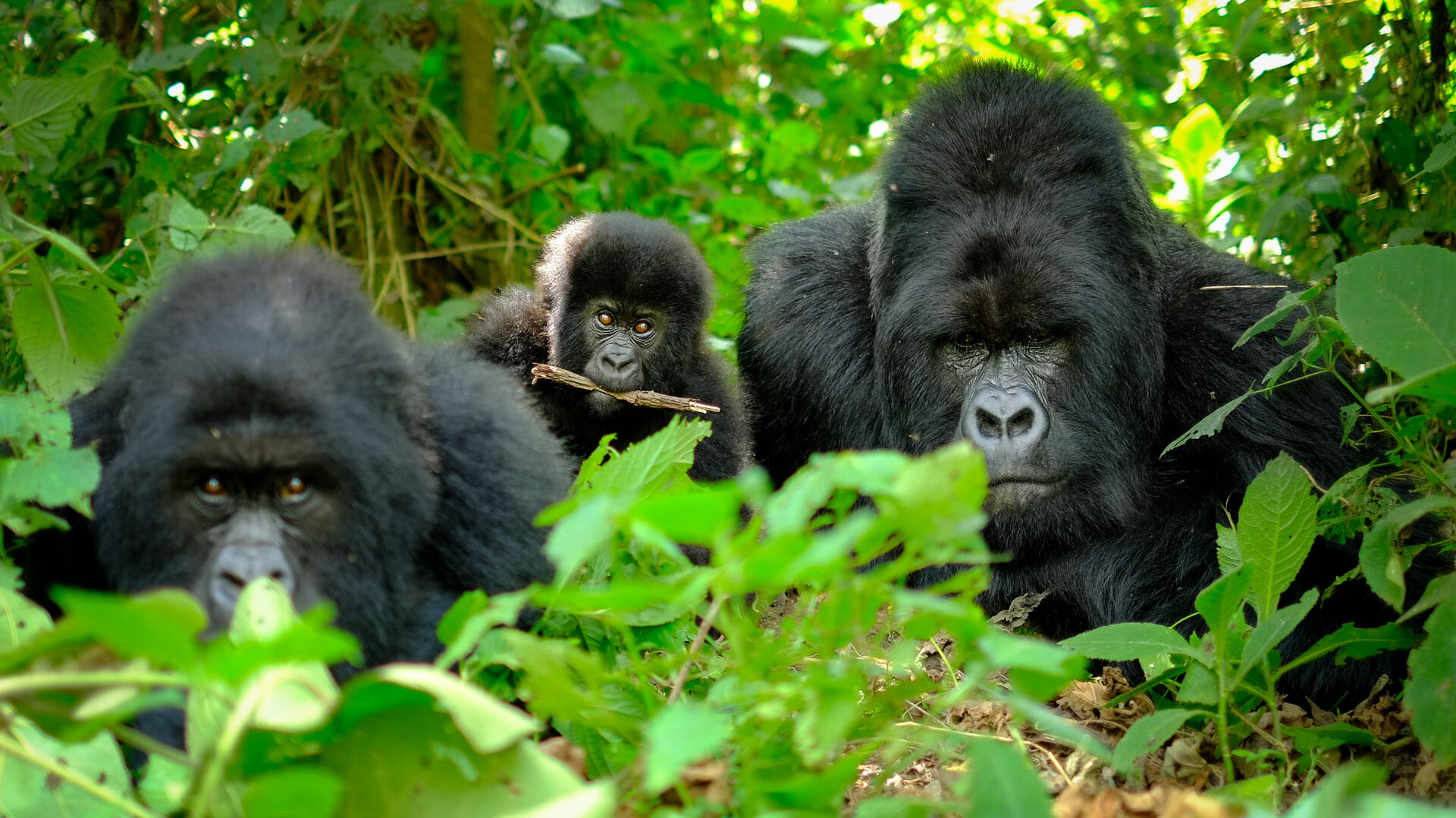What to expect on a Gorilla Trekking Safari in Rwanda. Exploring the Land of a Thousand Hills. Embarking on a gorilla trekking safari in Rwanda is a remarkable adventure that offers a rare opportunity to encounter the endangered mountain gorillas in their natural habitat. Nestled within the captivating landscapes of the Land of a Thousand Hills, Rwanda’s gorilla trekking experience promises breathtaking encounters, rich cultural immersion, and a deeper understanding of the conservation efforts in place to protect these magnificent creatures. From the mist-covered volcanoes to the heartwarming encounters with gorilla families, a gorilla trekking safari in Rwanda is a journey of a lifetime.

The Enigmatic Mountain Gorillas: An Overview
1. Species and Conservation Status: The mountain gorilla (Gorilla beringei beringei) is a subspecies of the eastern gorilla, found in the Virunga Massif, which spans Rwanda, Uganda, and the Democratic Republic of Congo. With fewer than 1,000 individuals remaining in the wild, mountain gorillas are critically endangered, making encounters with them all the more precious and significant.
2. Unique Characteristics: Mountain gorillas are known for their robust build, thick fur, and gentle nature. They live in cohesive family groups led by a dominant silverback, which is a mature male gorilla with silver hair on its back. The social dynamics, behavior, and interactions within each gorilla family are fascinating to observe and contribute to a deeper appreciation for these incredible creatures.
Preparation for Gorilla Trekking
1. Obtaining Permits: Gorilla trekking permits are required to visit the mountain gorillas in Rwanda. These permits are limited and need to be secured in advance due to high demand. It is advisable to book permits well ahead of time to ensure availability and plan your trip accordingly.
2. Fitness and Health: Gorilla trekking involves hiking through challenging terrains, including steep slopes and dense vegetation. It is essential to be in good physical condition to fully enjoy the experience. Consult with your healthcare provider for any necessary vaccinations or precautions before embarking on the trek.
3. Packing Essentials: When preparing for a gorilla trekking safari in Rwanda, it is crucial to pack appropriately. Some essential items include sturdy hiking boots, long-sleeved shirts, a lightweight rain jacket, insect repellent, sunscreen, a hat, and a small backpack to carry water, snacks, and camera equipment.
Gorilla Trekking in Rwanda | What Time Does it Start
What to pack for your gorilla trekking safari in Rwanda and Uganda
Gorilla trekking safari in Rwanda-Rwanda safari
How to reschedule Rwanda gorilla trekking permits?
Comparison between gorillas’ permit prices in Virunga national park and Volcanoes national park
The Gorilla Trekking Experience
1. Arrival and Briefing: Upon arrival in Rwanda, you will be welcome by your guide. He will transfer you to your accommodation. This is either Kigali or Ruhengeri, near Volcanoes National Park. The evening before the trek, you will attend a pre-trek briefing. Here, you will also receive important information about gorilla behavior, safety guidelines, and dos and don’ts during the encounter.
2. Trekking through Volcanoes National Park: The gorilla trekking adventure begins early in the morning as you enter Volcanoes National Park. Led by experienced guides and accompanied by armed rangers, you will embark on a journey through the lush rainforest, following trails that wind through the mist-covered volcanoes.
Popular gorilla safaris in Rwanda include;
3. Encountering the Gorillas: Once the gorilla family has been located, trekkers are allowed to spend a strictly regulated period (usually one hour) in their presence. This time is an extraordinary opportunity to observe their behavior, social interactions, and feeding habits. The proximity to these gentle giants offers a profound connection to the natural world and a humbling appreciation for their existence.
4. Cultural Experiences: In addition to gorilla trekking, Rwanda offers cultural experiences that provide insights into the local communities and their way of life. These activities may include visiting nearby villages, interacting with local artisans, learning traditional crafts, or witnessing traditional dances and ceremonies. These cultural encounters offer a well-rounded perspective of Rwanda’s rich heritage.
Conservation and Community Involvement
1. Conservation Efforts: Rwanda has been at the forefront of mountain gorilla conservation, implementing strict measures to protect its habitat and promote sustainable tourism practices. The revenue generated from gorilla permits directly contributes to conservation efforts, supporting anti-poaching patrols, habitat restoration, and community development projects.
2. Community Engagement: Gorilla trekking safaris in Rwanda often include opportunities to engage with local communities, fostering cultural exchange and understanding. Visiting community projects, supporting local artisans, or participating in community-based tourism initiatives allows travelers to contribute to the socio-economic development of the local communities while experiencing their warm hospitality.
Conclusion
A gorilla trekking safari in Rwanda is a transformative and awe-inspiring experience that immerses you in the world of endangered mountain gorillas. The breathtaking encounters with these gentle giants, the captivating landscapes, and the rich cultural experiences combine to create memories that will last a lifetime. Rwanda’s commitment to conservation and sustainable tourism practices ensures the protection of these remarkable creatures and their habitats. By participating in a gorilla trekking safari in Rwanda, you not only embark on a remarkable adventure but also actively contribute to the preservation of this fragile ecosystem and the well-being of the communities that call it home.







